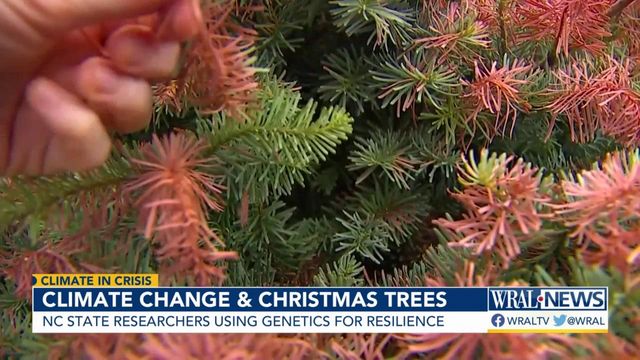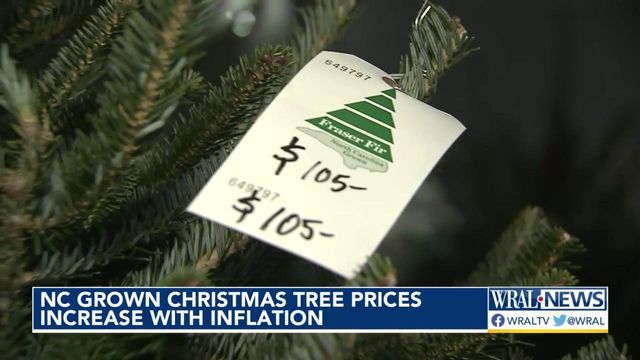Drought, climate, pests, disease: NC State breeding more resilient Christmas trees
Climate change is threatening Christmas tree crops, according to North Carolina State University researchers, who are working to make trees more resilient through genetics.
"We're developing trees that have natural genetic resilience to drought, climate, and also some of the pests that we’re facing," said Justin Whitehall, director of NC State's Christmas tree genetics program.
The department has been working on improving tree genetics for nearly four decades now.
"We’re in the process now of getting some of those genetics out to growers," Whitehall said.
Temperature changes and drought can stress tree populations, making them more susceptible to pests and diseases.
"Phytophthora root rot likes wet, warm climates, so as we’re seeing more of that, it's spreading further and faster," said Will Kohlway, who recently earned a PhD in functional genomics.
Fellow researcher Will Baldwin is focusing on aroma compounds in Fraser firs, a trait that can benefit consumers' noses and ward off pests.
Once favorable genes are isolated, research assistant Yannick Favre uses micro-propagation to produce trees.
"Using tissue culture allows us to use one seed to create thousands of plants," Favre said.
After Christmas tree shortages in recent years, improving trees' resilience can also benefit consumers by keeping prices down.
Experts say it is more sustainable to buy a natural Christmas tree as opposed to an artificial one that uses fossil fuels to produce and is not recyclable.
About 90% of artificial trees sold in the U.S. are shipped here from China.
Purchasing a natural tree supports forests and the carbon sequestration they provide. Real trees are also biodegradable and recyclable, often reused for mulch in public parks and other projects after the holidays.











